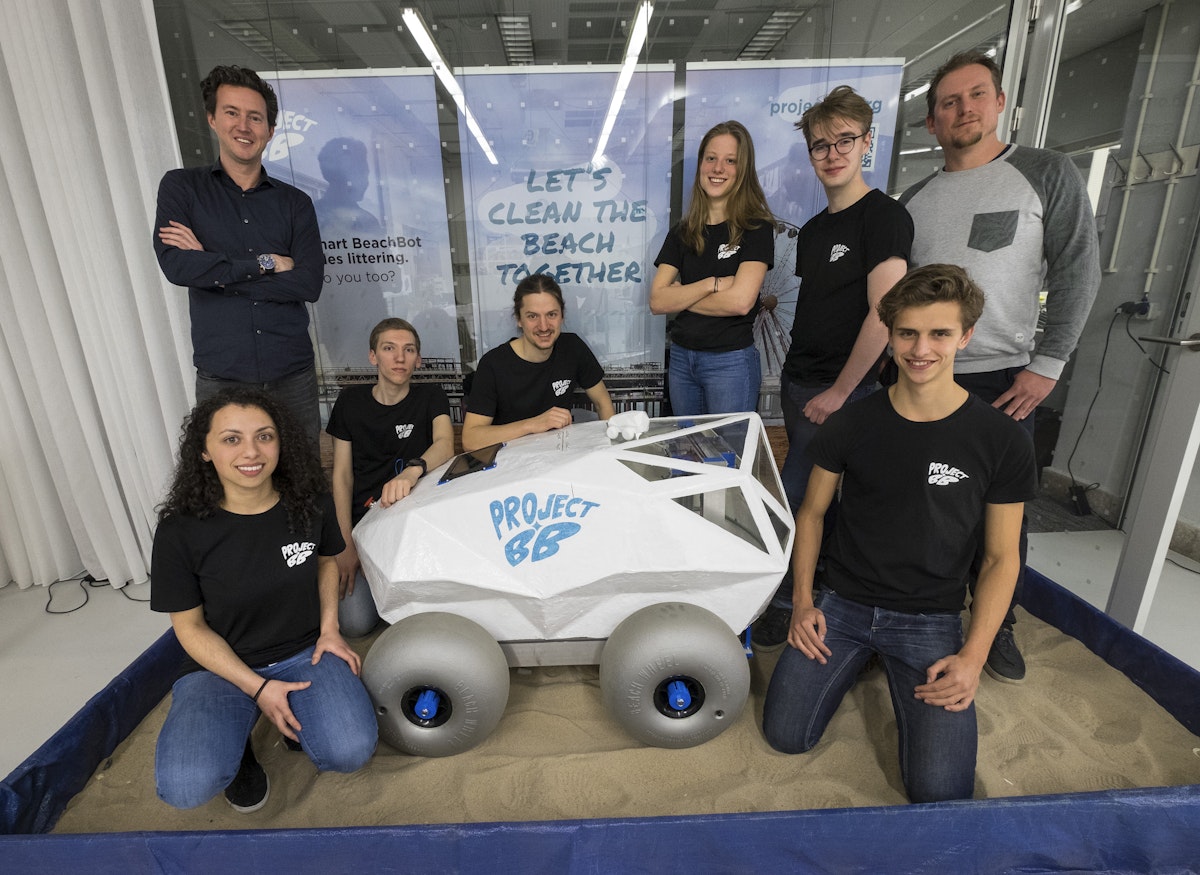
People continue to come up with inventive ways to clean up rubbish. Until we can persuade the human race to stop throwing trash where it intends to be. That is precisely why, Martijn Lukaart and Edwin Bos, two Dutch engineers who founded TechTics and created the BeachBot. BeachBot is on a quest to rid beaches of cigarette butts, with the aid of Microsoft’s artificial intelligence technologies. It eventually aims to clean up all types of garbage. Bos and Lukaart are the co-founders of TechTics, a Hague-based company that uses technology to tackle social problems.
Their prototype uses artificial intelligence (AI) to learn how to locate scattered filters, even if they are half-buried in the sand. BeachBot has completed one demonstration, which took place in September on Scheveningen Beach as part of World Cleanup Day. Another demonstration is planned for the summer.
On Monday, Microsoft showcased the startup, demonstrating a prototype computer that is still learning using the software giant’s Trove AI technology. It helps generate picture sets for machine learning tasks. Essentially, the robot will require human assistance to learn at first. After all, a robot has no idea what a cigarette butt is or how to recognize one. TechTics enlisted the public to contribute photographs to the AI system via Trove. The team then feeds this information to BB, which improves its understanding of what to search for in each image.
BeachBot: Human-robot interaction

According to the firm, the robot will require around 2,000 photos of cigarette butts on the beach to properly grasp what it’s searching for. BB has 200 so far. But it can already detect trash with two onboard cameras. Further, utilize robotic arms, and deposit cigarette butts in an onboard bin. The crew may then appropriately dispose of the waste.
Hundreds of residents support this objective. To get there, Bos and the TechTics team developed the world’s first AI-based detection system for cigarette butts. BeachBot was created in collaboration with students from the Delft University of Technology, Netherlands.
On Scheveningen Beach, the fastest way to a cleaner shoreline is via cooperation between people and mobile bots, Bos agrees.
“That’s the most interesting part of our concept – we have a human-robot interaction where the public can help make the robots smarter,” Bos says.
BB is only the beginning of this endeavor. It’s presently working on two smaller robots to provide BB with a support crew. The tiny devices will scour the area for cigarette butts. Then communicate with BB to request that this rubbish should be out. It’s inspiring to watch people and machines collaborate. TechTics’ mission is to raise awareness that littering should never be permissible.






